Dialogue held between women with disabilities, civil society and authorities
Date:
The International Day of Persons with Disabilities is marked annually on 3 December, with the aim of raising awareness on disability challenges and mobilizing support to ensure the well-being, dignity and respect for persons with disabilities and their rights. This year’s theme was "Unite in action to achieve the Sustainable Development Goals for, with and by persons with disabilities."
In 2022, people with disabilities accounted for 6.5 per cent of Moldova’s total population. According to data from the National Social Insurance House, 168,000 people are recognized as having disabilities in the country.
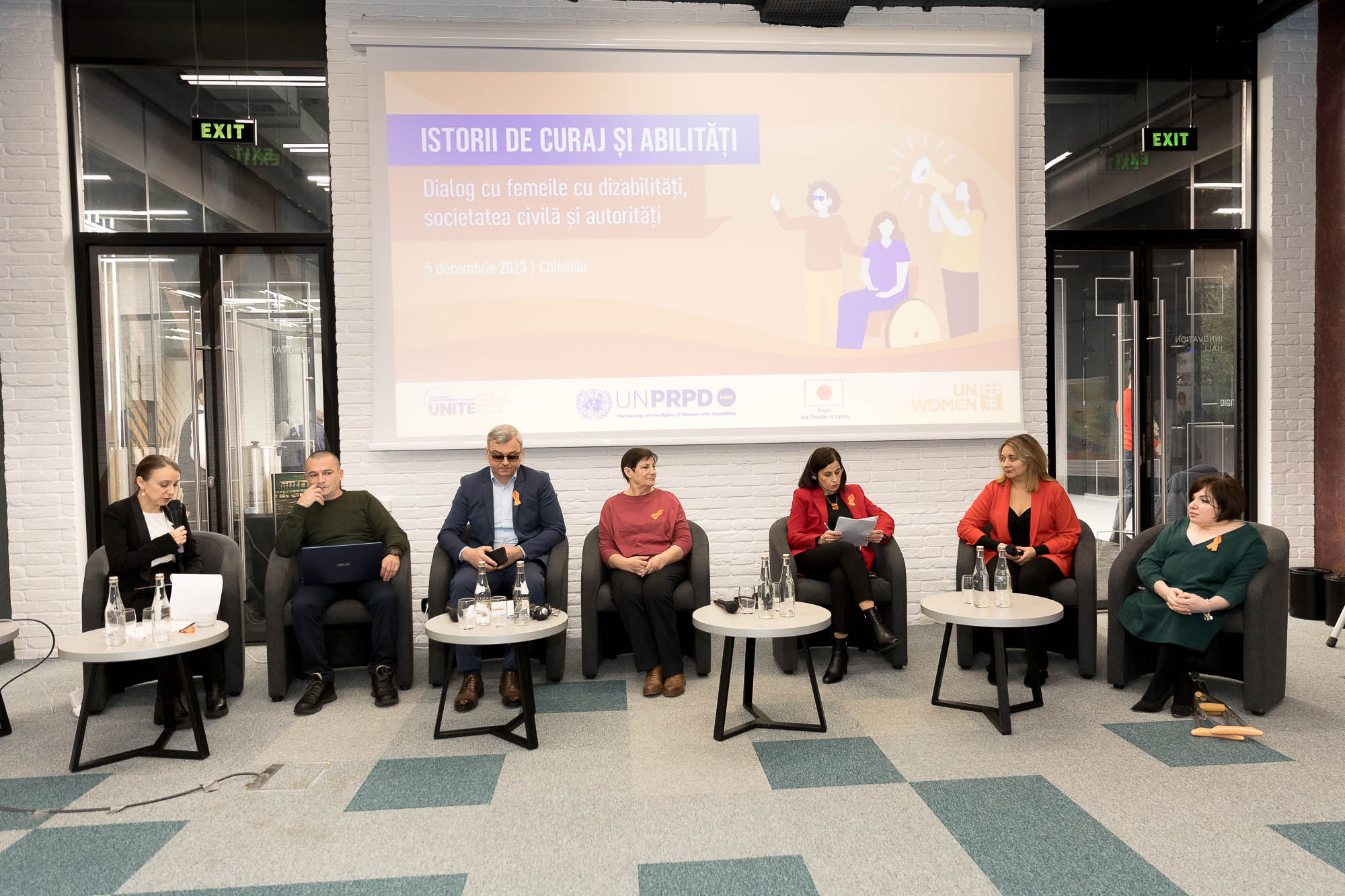
To commemorate International Day of Persons with Disabilities, as well as 16 Days of Activism Against Gender-Based Violence, UN Women Moldova organized the event "Stories of courage and abilities: Dialogue between women with disabilities, civil society and authorities" on 5 December. The event celebrated the voices of women with disabilities in local communities and among refugees and also highlighted the perspectives, experiences and good practices of disability organizations and authorities in the field.
Attending the event, Vasile Cușca, the State Secretary of Social Assistance for the Ministry of Labor and Social Protection, spoke about the new National Programme on Social Inclusion of People with Disabilities, which was approved for 2024-2028 following consultations between representatives of the central public authorities, public institutions, the Ombudsman and civil society. "We want the new programme to reflect all the problems faced by people with disabilities and the solutions of these problems, in order to propose concrete actions to ensure the inclusion of people with disabilities,” said Cușca.
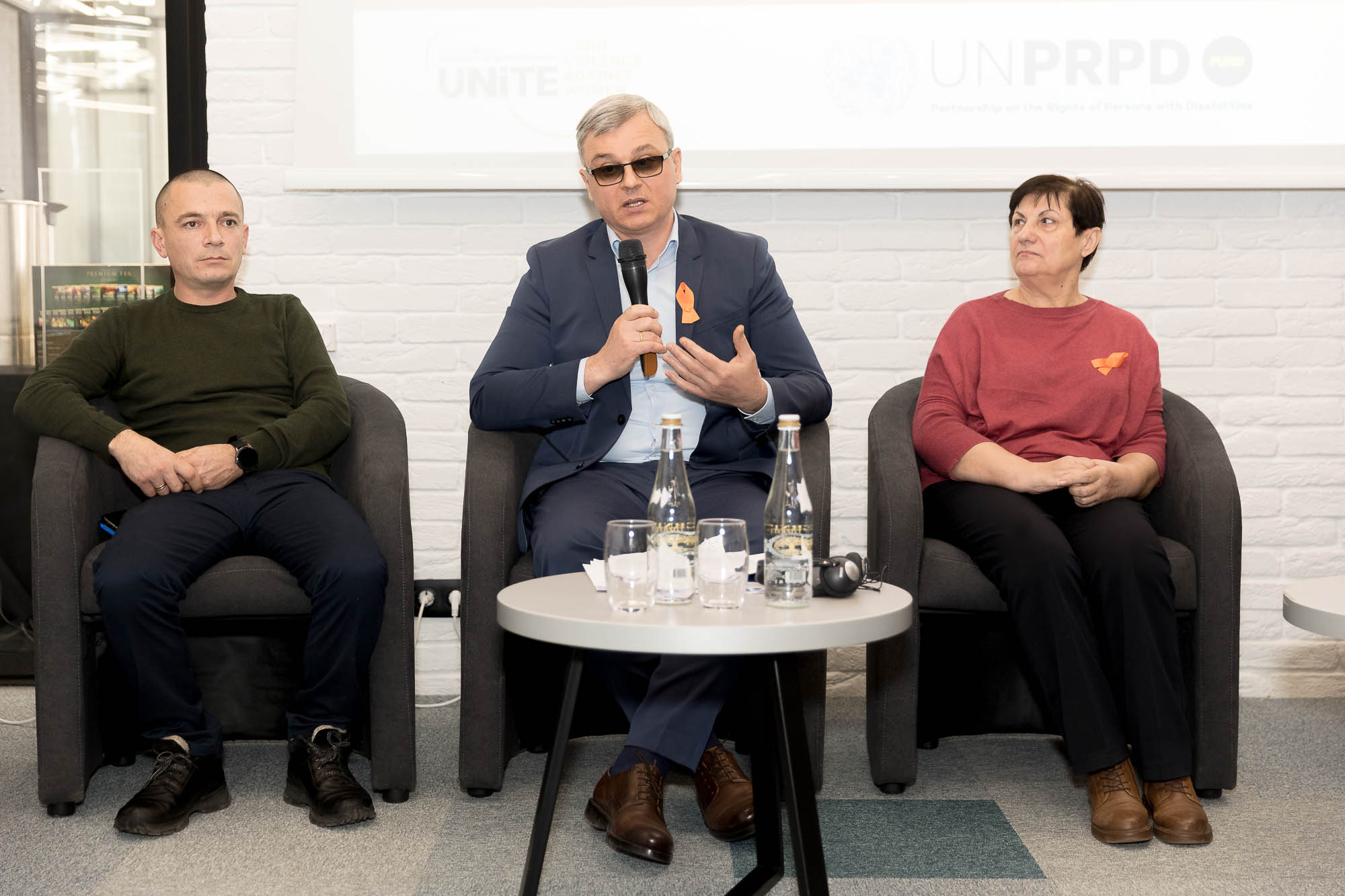
The new programme seeks to address issues facing people with disabilities from a multidisciplinary perspective. The main areas of intervention will focus on accessibility, health, social assistance, education, empowerment and participation, ensuring the right of all people with disabilities to physical and mental integrity and personal autonomy, equality and non-discrimination and protection against all forms of violence.
The dialogue also addressed educational inclusion for people with disabilities, including the fundamental role of education for their development.
Galina Gavriliță, a senior consultant for the Ministry of Education and Research’s Public Policy Coordination and European Integration Directorate, discussed efforts to ensure inclusive education. "Today, in vocational, technical and higher education, we are already ensuring that people with disabilities have both physical and educational access,” she said. “We have individual educational plans and programmes adapted to the needs of each child. At the same time, we are focused on a project to reorganize psycho-pedagogical assistance services at the district level, within which we are planning broader activities to help students with disabilities and their parents. Changing mentalities is hard but changing our vision for certain approaches and pursuing different models and implementing them in society is easier."
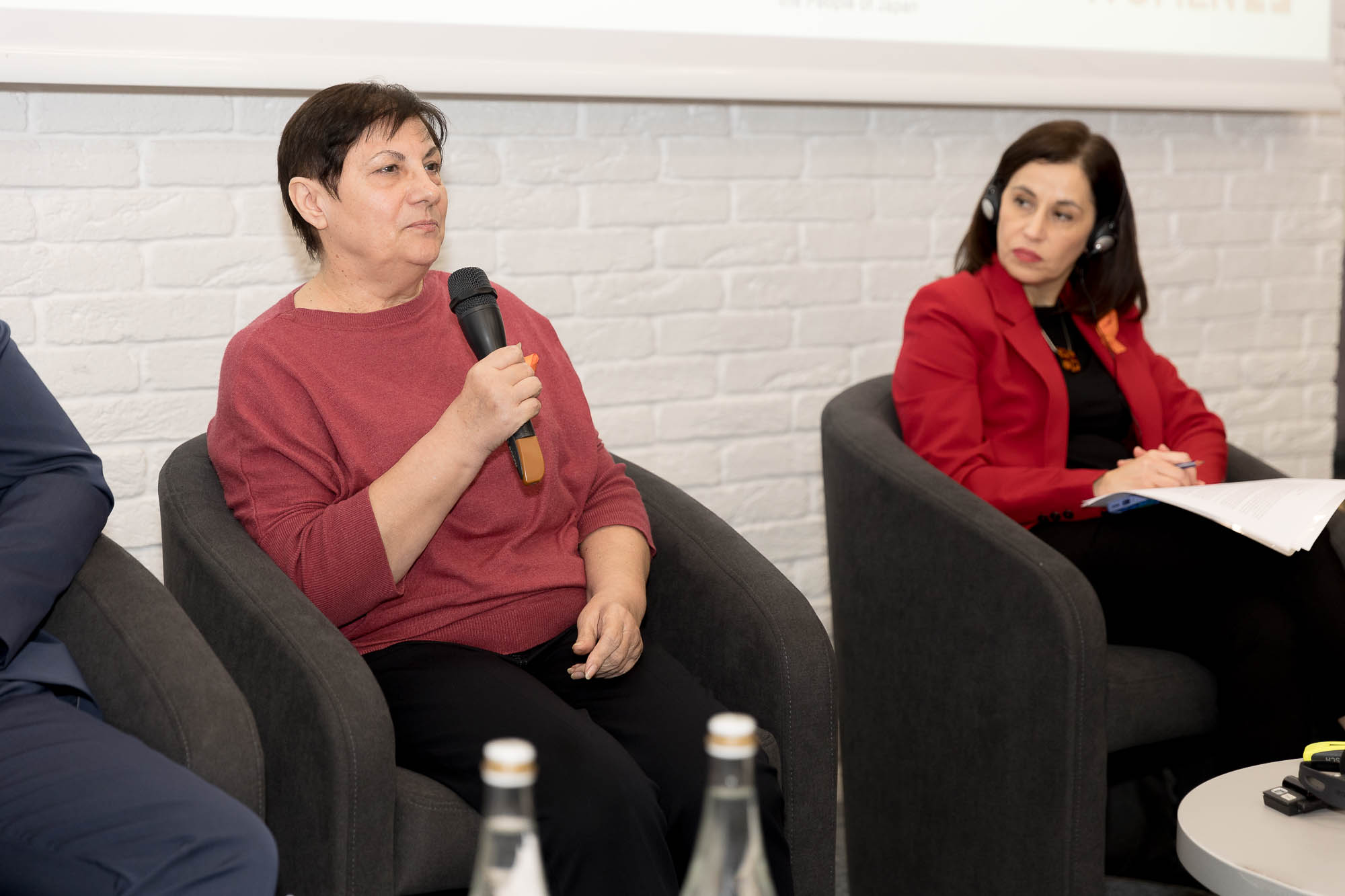
"It is essential that we engage with women with disabilities and move forward, taking into account their voices,” said Dominika Stojanoska, UN Women Moldova’s Country Representative. “It is important to draw on real experiences to identify the main barriers and challenges they face. We are committed to continuing to work together with the government and civil society organizations to develop effective initiatives, transforming the concept of disability into a recognition of diverse abilities and competences.”
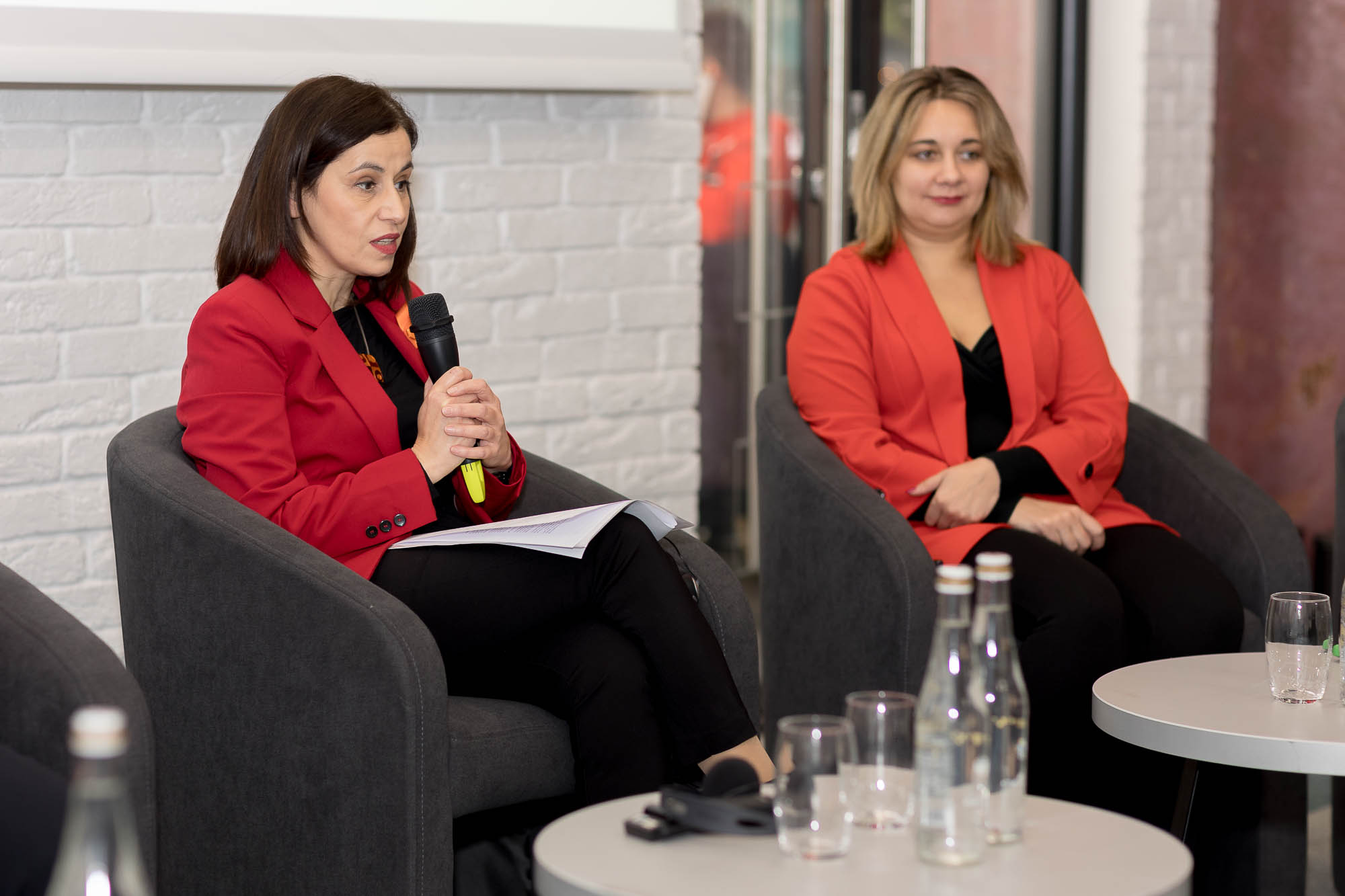
The dialogue’s participants also discussed the declaration written by a group of women and girls with disabilities and submitted to the Ministry of Labor and Social Protection this spring. The purpose of the declaration was to reiterate their needs and provide solutions to the challenges they face, with the goal of eliminating all forms of stigma and discrimination and fostering a more inclusive society.
One of the signatories of this declaration is Ludmila Jalba, the mother of a disabled child. During the dialogue, she not only spoke about the challenges she has encountered over time but also about her motivation to get involved in projects and initiatives that support the disability community. "I live with a disabled child and over time I have faced all the problems that a mother can face,” she said. “What made me stronger was my daughter's desire to be an integrated child."
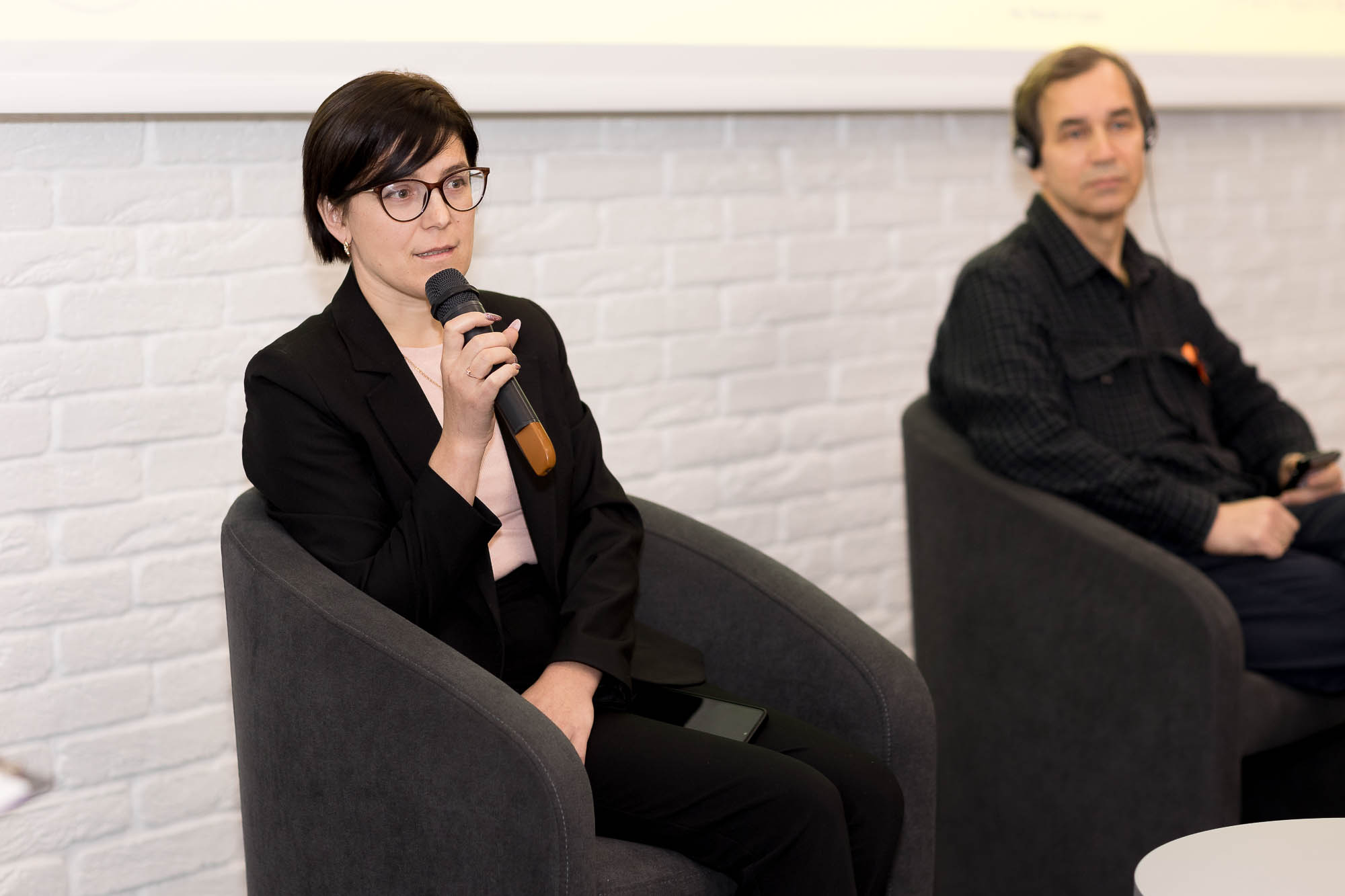
The same challenges facing people with disabilities in Moldova are also common among refugees with disabilities. Since the beginning of Russia’s invasion of Ukraine, Moldova has hosted over 360,000 refugees. Among them is Andrei Apasov's mother, a woman with a locomotor disability and a beneficiary of an activity implemented by the NGO “Motivation" through "Strengthening the socio-economic resilience of women and girls affected by the refugee crisis in Ukraine," a project implemented by UN Women Moldova and funded by the Government of Japan. Apasov spoke about the support his mother received from organizations for people with disabilities in Moldova. "We got a lot of support. We were provided with adapted transport to travel to accommodation centers, and the necessary assistance was provided for my mother, who has special needs,” he said. “We also received the products we needed. My mother always says she ‘started living again’ thanks to the support we received in Moldova."
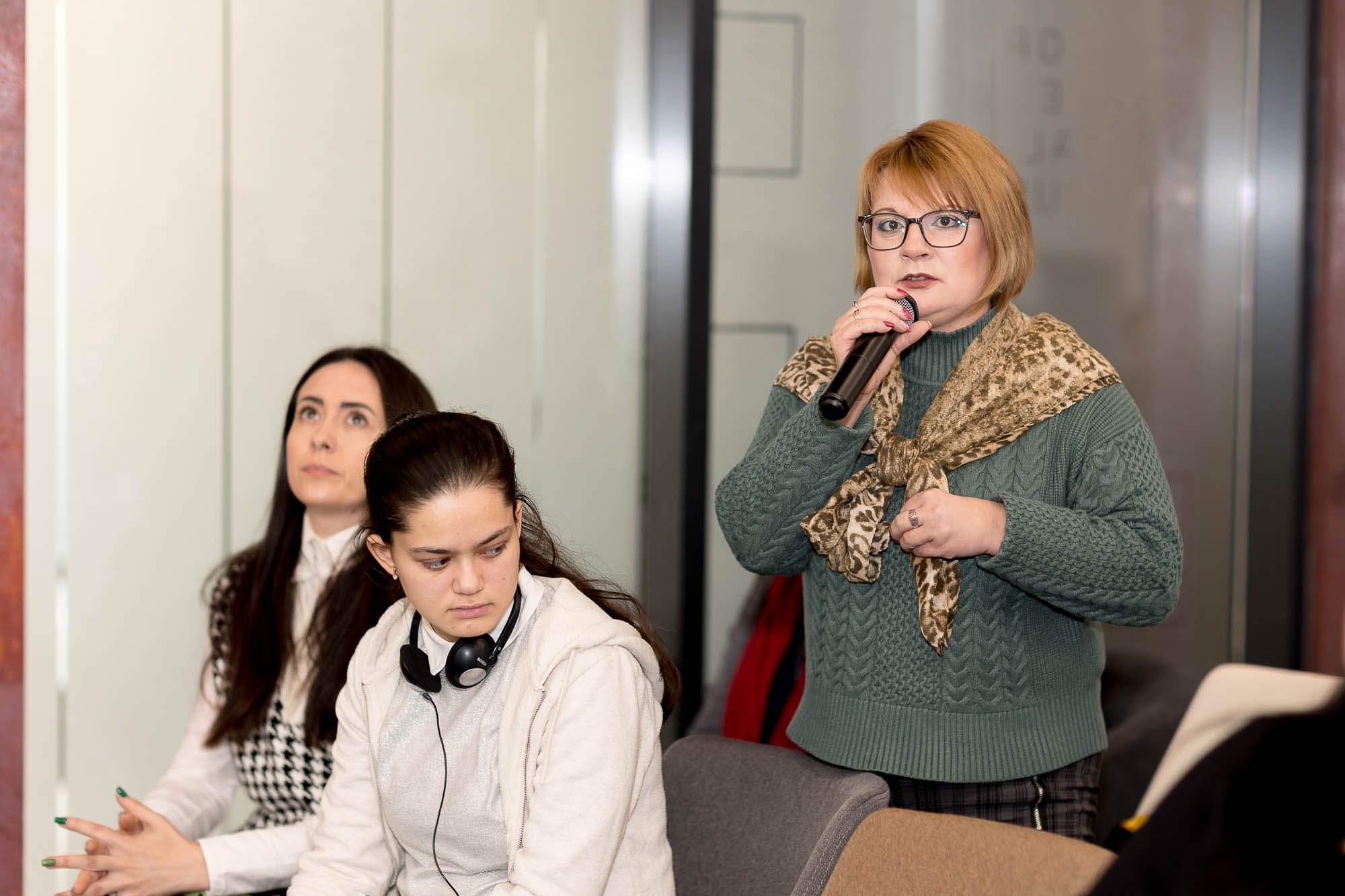
During the dialogue, civil society organizations participating in the event through the Association of Entrepreneurs with Disabilities of the Republic of Moldova and the NGO "Motivation" reiterated their vision for the future. They stressed that promoting inclusion for persons with disabilities requires ensuring their access to education, financial independence and integration into political and social decision-making processes.
The event "Stories of courage and abilities: Dialogue between women with disabilities, civil society and authorities" was organized in the context of two projects: "Integrating a disability dimension into humanitarian interventions to the refugee crisis in Ukraine" (which is being implemented by UN Women and other UN agencies, with funding from the United Nations Partnership on the Rights of Persons with Disabilities) and "Strengthening the socio-economic resilience of women and girls affected by the refugee crisis in Ukraine"(which is being implemented by UN Women Moldova, with funding from the Government of Japan).